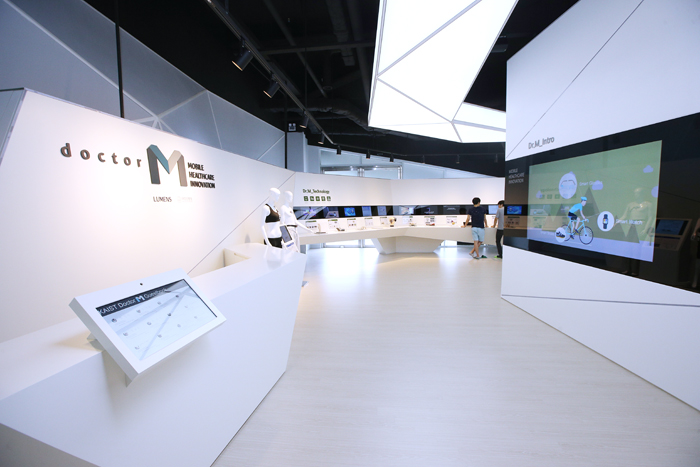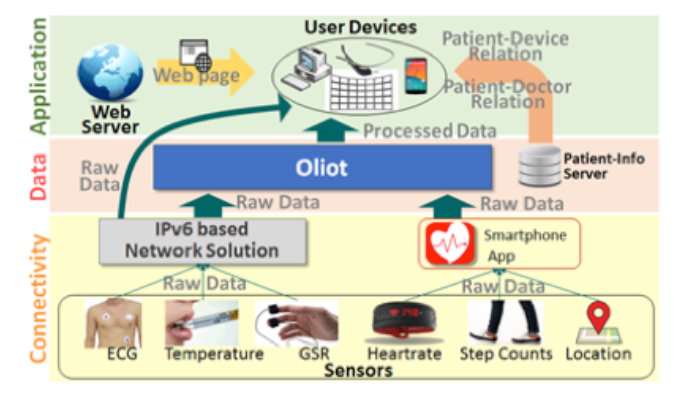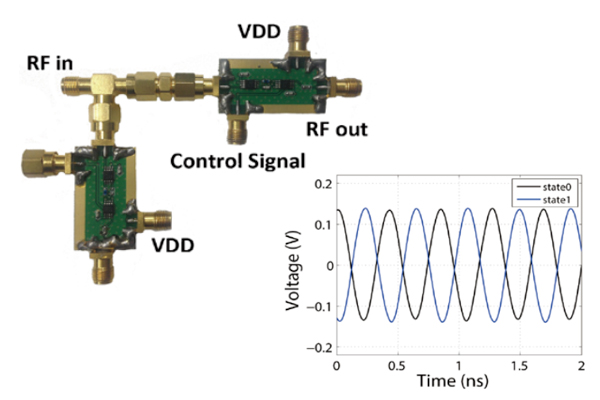KAIST has launched the ‘Dr. M’ project which contains various studies on mobile healthcare technology and established a Dr. M testbed in the KI building to demonstrate the research results collectively and find future research topics.
The ‘Dr. M’ project is a research project to implement mobile healthcare systems and analyze bio-signals collected through diverse smart sensors as well as innovate healthcare technology which can be applied to our daily lives. These include various sensor technologies, low-power communication technology, IoT technology, big data technology, and technologies for analyzing and predicting diseases.

Sensor technologies to detect bio-signals and provide individual genetic information are being studied. The sensors provide health information on our daily lives and users’ activity patterns. Health-related information is collected efficiently via wireless sensor network and the internet, and is then analyzed by the Dr. M system . The mobile healthcare systems use the accumulated genetic information to make personalized telemedicine and healthcare service possible.
KAIST researchers launched 28 unique projects as part of the Dr. M project last year and established a testbed on the first floor of the KI building in August to demonstrate their research outcomes effectively. The Dr. M testbed consists of display parts to introduce individual technology and demonstration parts to introduce a service scenario for homes and hospitals. Sensor technologies include Smart Belt, Stick-on, an ECG patch system, optical/electric chemical hybrid biosensor patches, and non-invasive bio-signal detecting radar sensors. There are also communication networks and platforms for low-power communication.
Cyber telemedicine systems were established in homes and hospitals within the testbed so that users are remotely connected with doctors at hospitals and can receive medical service in a convenient manner based on information collected from their daily lives. Dr. M researchers are demonstrating a service scenario showing that they can collect and store information not only about sleeping, weight management, and blood pressure but also about heart rates and body temperature through non-contact measurement in homes. When users receive telemedicine service from doctors who are located at hospitals, they can share their information with the doctors and receive feedback about their health information.
The monitoring system also monitors bio-data in real time through health and medical systems so that it can swiftly handle emergency situations changing in real time. Data can be gathered from a diverse range of devices and service can be provided with EagleEye, a user integrated application through the Oliot platform, which handles and shares the data. EagleEye monitors bio-signal data in real time when users who agreed to provide information in advance have bio-signal sensors and can handle emergency situations immediately.

Dr. M users can conveniently receive various healthcare services from medical doctors who will be able to analyze conditions of first-aid patients, chronic patients, and elderly patients while providing accurate diagnoses without having to be in the same physical location.








